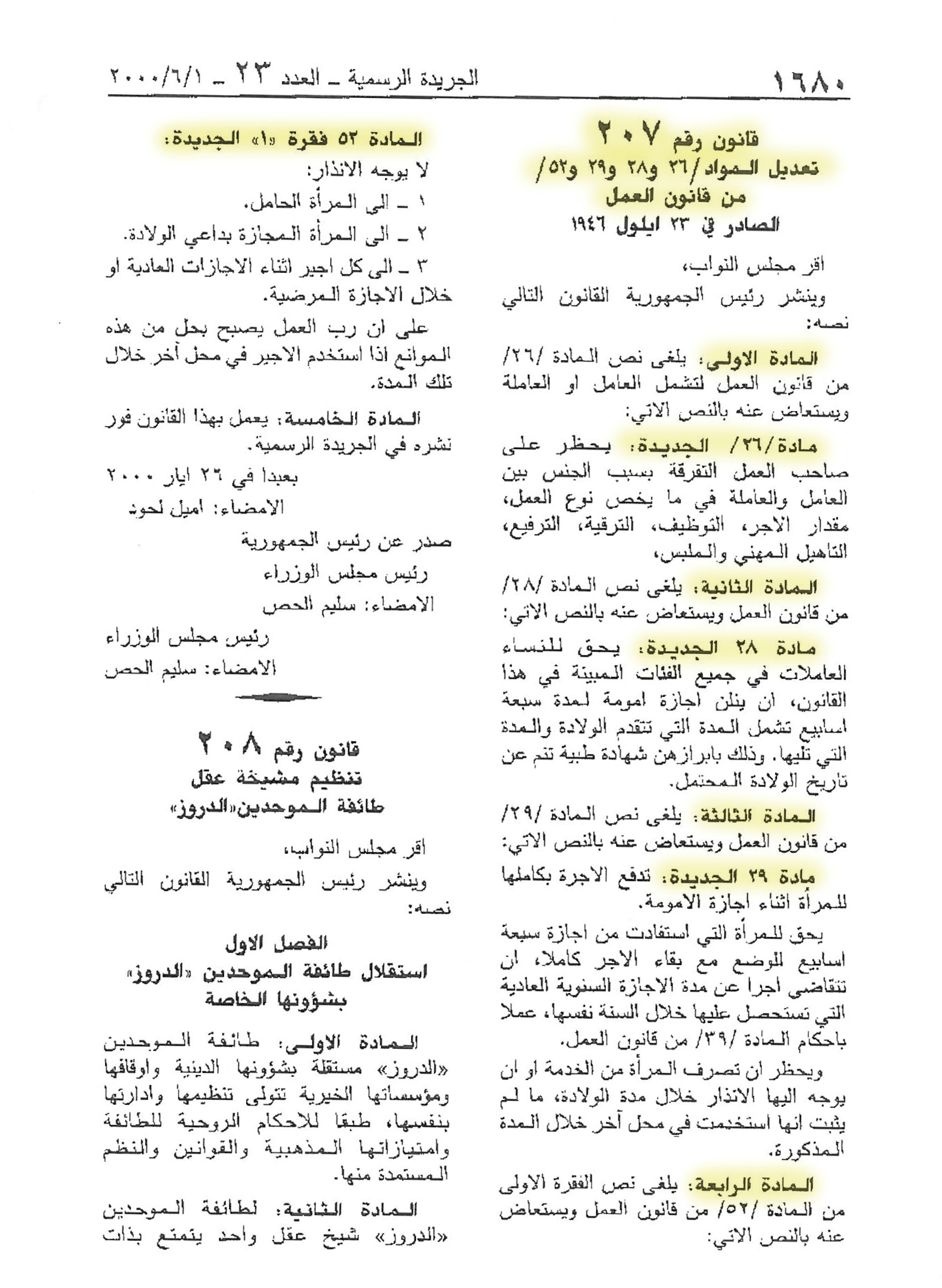Providing equal working conditions for men and women in the public and private sectors
26 May 2000 – A number of articles in the Lebanese Labour Law were revoked and amended to achieve equal working conditions for men and women working in the public sector. The amended provisions included benefits and services offered to the employees and their families. In addition, women were allowed to have night shifts at work, and their fully paid maternity leave was extended from 40 to 60 days for public sector employees, and to seven weeks for private sector employees. Employers were also prohibited from dismissing pregnant employees from work beginning in their fifth month of pregnancy, or during their maternity leave.
Despite these stipulations and the fact that women can sue their employers, lawsuits against employers remain rare, and gender discrimination at the workplace remains omnipresent in Lebanon. The stipulations of the 1942 Lebanese Labour Code still exclude some workers from its mandate, including ِagricultural workers who are not affiliated with trade or industry sectors as well as domestic workers – who are mostly women– on the grounds that there would be a separate legislation to regulate these types of labour. Also, the definition of a worker includes “any man, woman, adolescent who works for the consideration of a wage or a salary…,” yet stipulations like Article 27 restrain the employment of children, adolescents, and women in some jobs – such as the production of alcohol – and prohibit women from working in hazardous jobs involving chemicals and electricity. Though such clauses are meant to protect women from hazard, singling women out and coupling them with children imply that adult women are perceived as juvenile figures, which is a notion that is codified and reflected in the law. Instead, safety measures for both men and women could be introduced.
Another instance of gender discrimination in the Labour law is manifested in the discrepancy in rest-time between women and men. While the former are given one hour of rest-time midday for each five hours of work, the later are granted one hour of rest-time midday for each six hours of work (Article 34). Finally, women are allowed to receive their end-of-service indemnities if they leave their work due to marriage on condition that they have completed more than a year of service, while men are not granted the same right. Such stipulation supports and sustains the perception of women as caregivers who should prioritise household duties.


